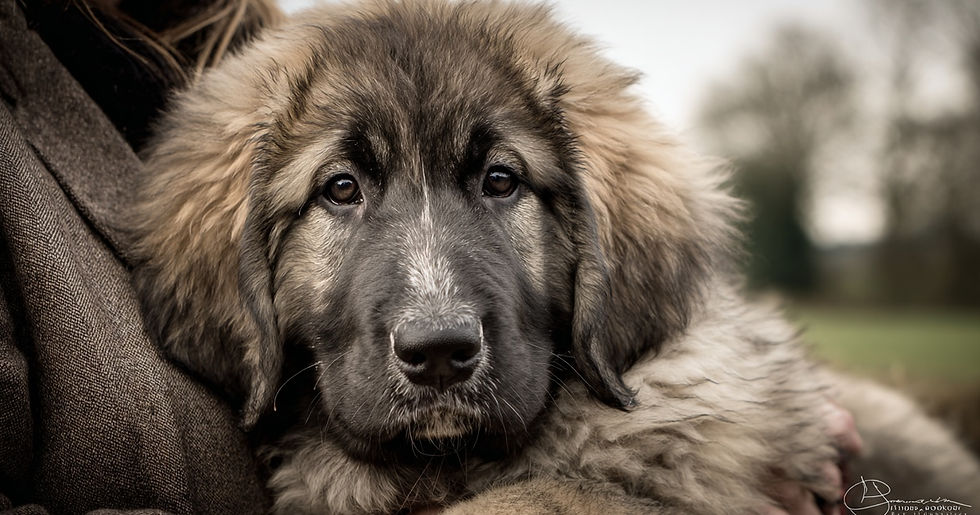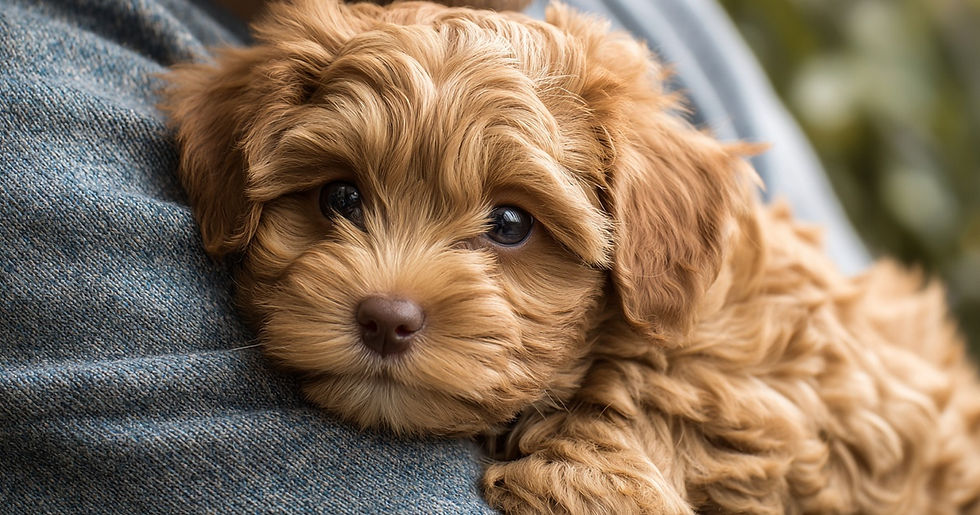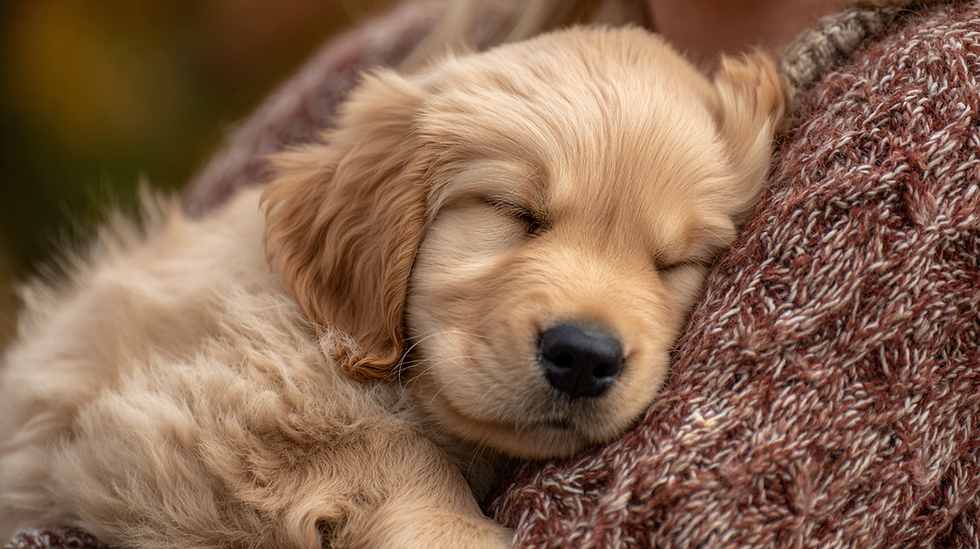Creating a Gentle Routine for Puppies 8 to 16 Weeks Old
- nannykp76
- Oct 6, 2025
- 4 min read

Between eight and sixteen weeks of age, puppies are learning about the world at an incredible pace. This is the stage where they begin to explore, test boundaries, and form lasting impressions about people, places, and daily life. It is also a stage where their needs shift constantly as they grow.
While structure is important, a rigid, clock-bound schedule can create unnecessary stress for both the puppy and the caregiver. What puppies need most is a gentle, flexible rhythm that offers predictability without removing the ability to adapt to their changing needs.
A well-balanced routine is not just about "what happens when". It's about creating moments of connection, calm, and confidence that help your puppy thrive in their new world.
Why Gentle Routines Work Best in This Stage
At this age, puppies need three things above all else: consistency, calm guidance, and plenty of rest. Their brains are developing quickly, but their bodies still require long stretches of downtime. In fact, most puppies between eight and sixteen weeks old need up to eighteen hours of sleep every day.
Many first-time puppy parents expect to keep their new companion entertained constantly, but that can actually lead to overstimulation. Puppies learn just as much from peaceful, low-energy moments as they do from active play. By pairing short bursts of enrichment with long, restful breaks, you create an environment that supports both physical growth and emotional stability.
Understanding Your Puppy's Natural Rhythms
Even though every puppy is unique, there are certain patterns that most puppies in this age range follow:
They often need to potty immediately after waking up, after meals, and after play.
They do best with short play sessions followed by downtime.
Their energy levels can change quickly. A lively puppy can be ready for a nap just ten minutes later.
Recognizing and working with these natural rhythms helps you create a routine that feels supportive instead of forced.
A Sample Daily Flow for Puppies 8 to 16 Weeks Old
No two puppies will have identical schedules, but many do well with a gentle rhythm that looks
something like this:
Wake up and go out for a potty break - The first trip outside of the day should be immediate.
First meal - Use part of the food for engagement or simple training.
Gentle play or light enrichment - Examples include a snuffle mat, short tug game, or puzzle feeder.
Potty again after play - Helps prevent early morning accidents.
Nap in a quiet crate or playpen - This rest period helps prevent overtiredness.
Potty break immediately after nap - Young puppies often need to go within minutes of waking.
Midday outdoor exposure or light training - Keep it brief and positive.
Second meal - Followed by a short calm play session.
Potty after eating and playing - Stay ahead of the need rather than waiting for signs.
Afternoon nap or quiet time - This could be in the crate, playpen, or a calm supervised area.
Evening potty break and enrichment - A walk in the yard, a food puzzle, or gentle socialization at home.
Final meal and evening calm down - Pair food with a relaxing activity to prepare for nighttime rest.
Last potty break before bed - Keep it calm and uneventful so your puppy transitions easily to sleep.
These moments are not about keeping the clock exact. They are about creating a reliable flow so your puppy learns what comes next and feels secure.
Anchoring the Day with Calm Moments
One of the best ways to make a routine meaningful is to build in calming anchors at natural transitions:
Before meals - Ask for a brief sit or wait before setting the bowl down.
Before entering the crate - Use the same soft cue each time.
After coming inside - Encourage a few seconds of calm before moving on to play or another activity.
These little rituals create predictability. Over time, your puppy will recognize these cues and settle more easily during transitions. Even something as simple as sitting before going through a doorway teaches patience and emotional regulation.
The Role of Flexibility
While consistency matters, routines should never be so rigid that they ignore a puppy's unique needs. Development at this stage can shift week to week, and some days will naturally look different from others.
Some examples of when flexibility matters:
During growth spurts - Your puppy may nap longer or need extra meals.
In sensitive periods - They might become cautious or fearful of things they previously accepted.
On high-activity days - They might need extra rest instead of sticking to your usual play sessions.
A good caregiver learns to observe and adjust calmly instead of forcing the day to follow an exact schedule. This adaptability creates a sense of security, because your puppy learns you will meet their needs even when things change.
Common Mistakes When Building a Routine
Many puppy parents unintentionally create challenges by:
Expecting the puppy to be "on" all day instead of respecting rest needs.
Changing the routine dramatically from day to day.
Forgetting to include enough potty breaks after sleep, play, and meals.
Overloading the schedule with training or outings instead of balancing activity with calm.
Avoiding these pitfalls helps your puppy develop confidence without becoming stressed or overtired.
A Routine That Builds Connection
The most valuable thing your puppy's routine can do is strengthen the bond between you. When daily life flows with calm guidance, your puppy learns to trust you in every situation.
A gentle routine:
Supports emotional safety by providing predictability.
Builds trust through consistent care and fair expectations.
Encourages learning by giving the puppy space to rest and process new experiences.



Comments